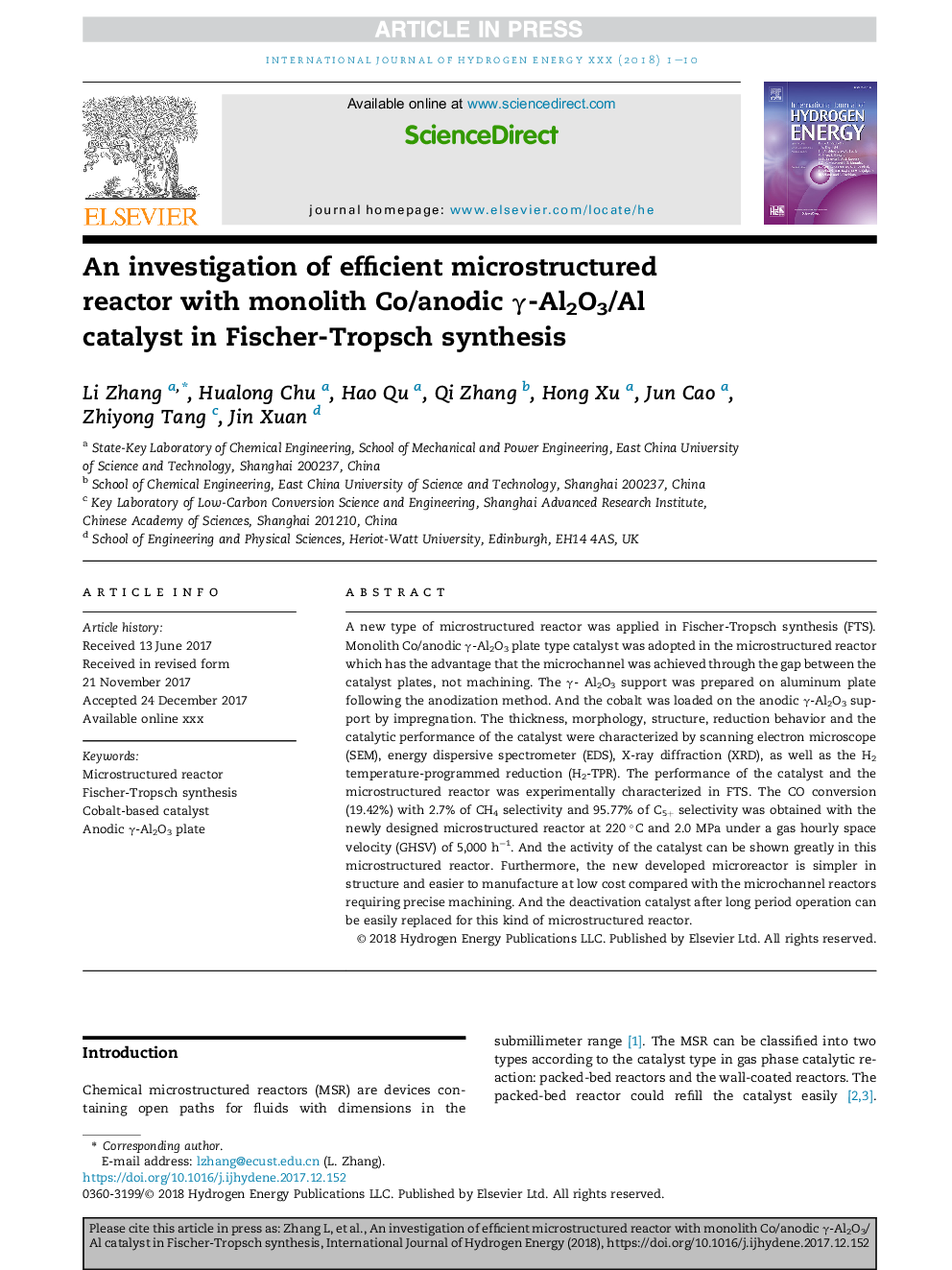| Article ID | Journal | Published Year | Pages | File Type |
|---|---|---|---|---|
| 7707700 | International Journal of Hydrogen Energy | 2018 | 10 Pages |
Abstract
A new type of microstructured reactor was applied in Fischer-Tropsch synthesis (FTS). Monolith Co/anodic γ-Al2O3 plate type catalyst was adopted in the microstructured reactor which has the advantage that the microchannel was achieved through the gap between the catalyst plates, not machining. The γ- Al2O3 support was prepared on aluminum plate following the anodization method. And the cobalt was loaded on the anodic γ-Al2O3 support by impregnation. The thickness, morphology, structure, reduction behavior and the catalytic performance of the catalyst were characterized by scanning electron microscope (SEM), energy dispersive spectrometer (EDS), X-ray diffraction (XRD), as well as the H2 temperature-programmed reduction (H2-TPR). The performance of the catalyst and the microstructured reactor was experimentally characterized in FTS. The CO conversion (19.42%) with 2.7% of CH4 selectivity and 95.77% of C5+ selectivity was obtained with the newly designed microstructured reactor at 220 °C and 2.0 MPa under a gas hourly space velocity (GHSV) of 5,000 hâ1. And the activity of the catalyst can be shown greatly in this microstructured reactor. Furthermore, the new developed microreactor is simpler in structure and easier to manufacture at low cost compared with the microchannel reactors requiring precise machining. And the deactivation catalyst after long period operation can be easily replaced for this kind of microstructured reactor.
Related Topics
Physical Sciences and Engineering
Chemistry
Electrochemistry
Authors
Li Zhang, Hualong Chu, Hao Qu, Qi Zhang, Hong Xu, Jun Cao, Zhiyong Tang, Jin Xuan,
